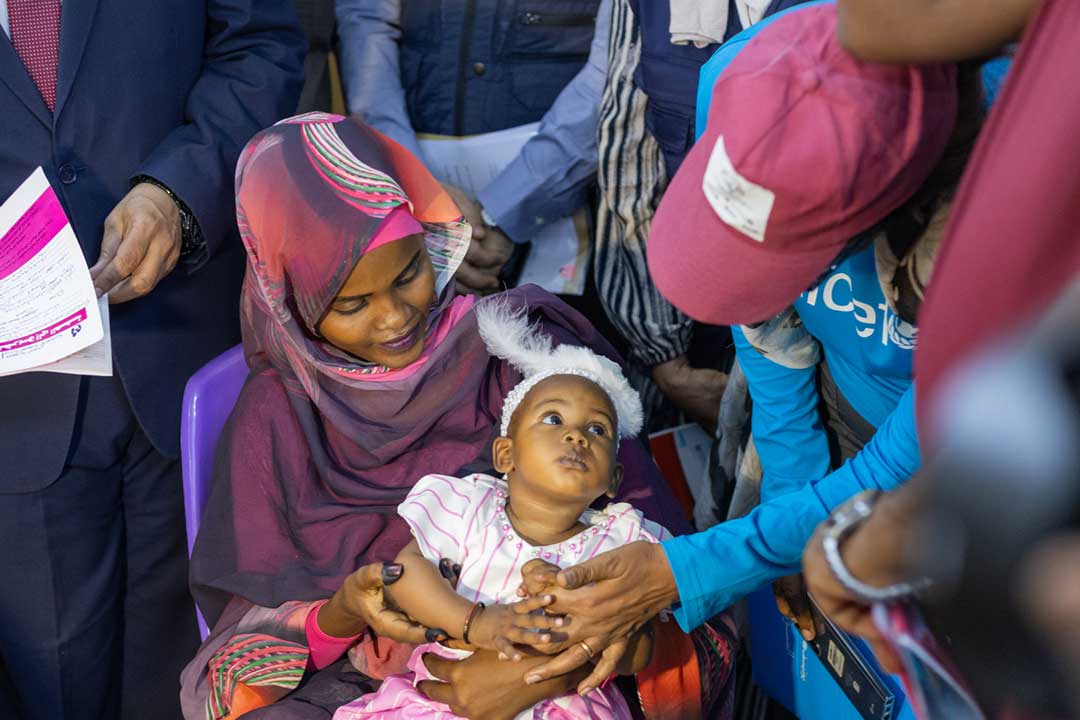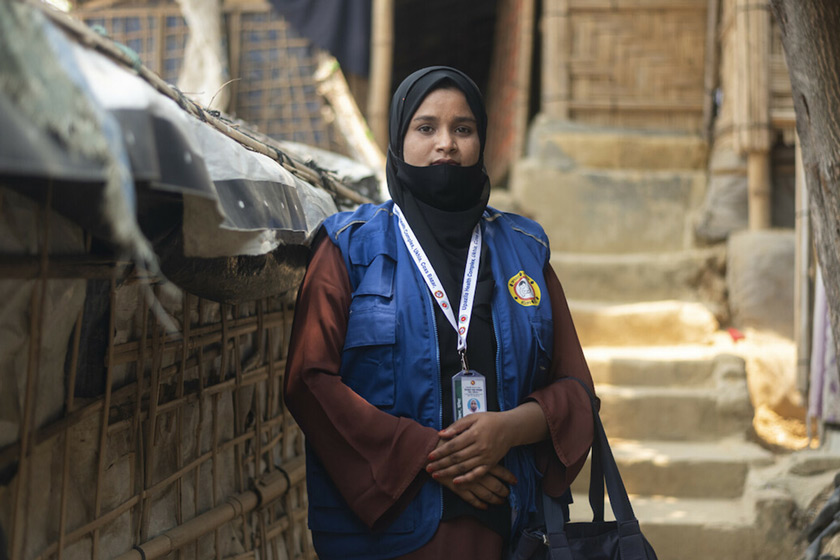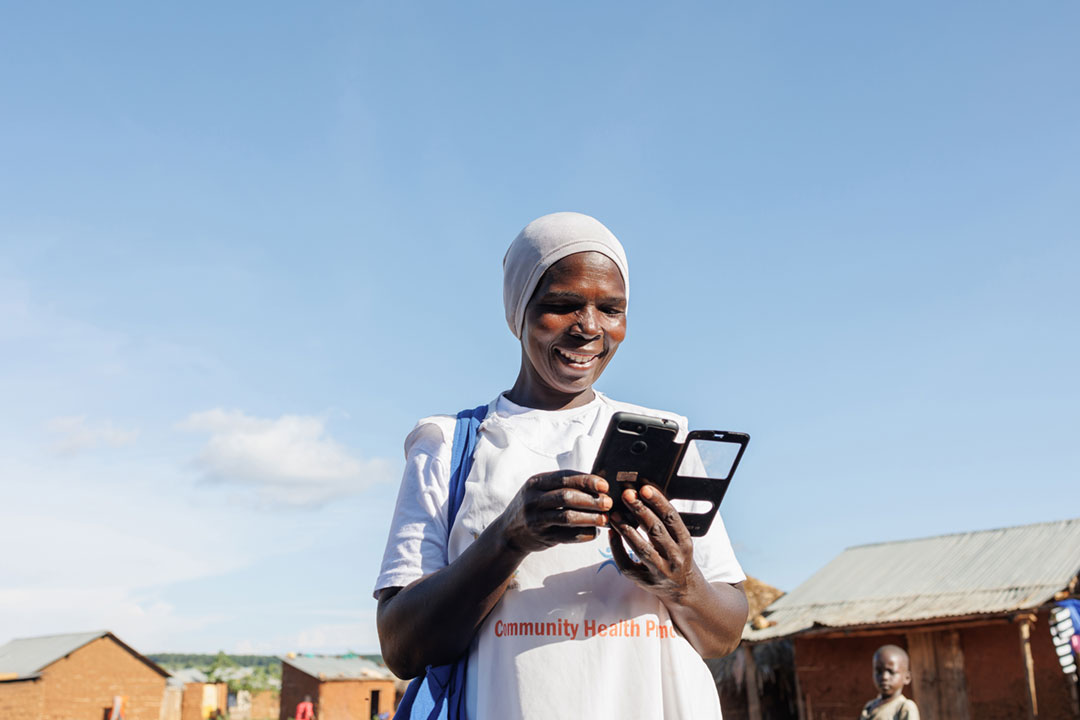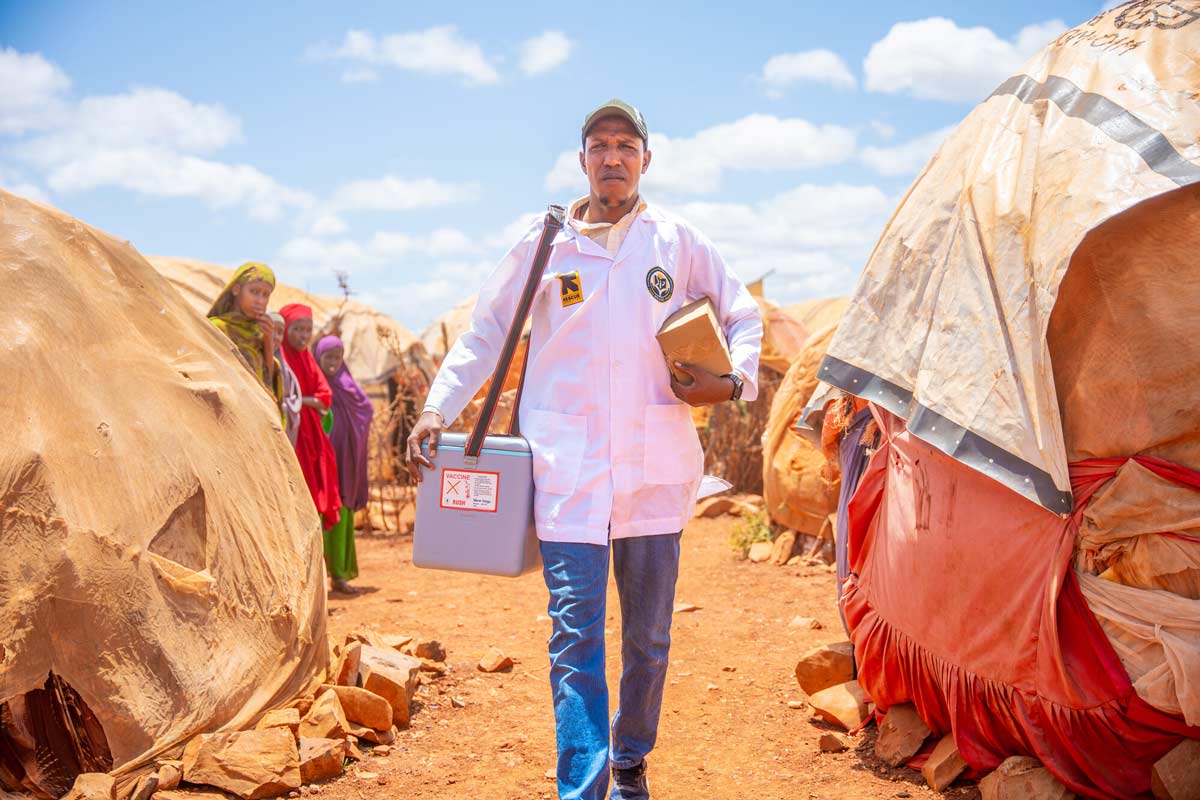Malaria control: a turning point in history?
2024 may come to be seen as a turning point in the history of malaria control.
- 26 November 2024
- 6 min read
- by Ian Jones , Charlotte Mbuh

Malaria is ancient: references to malaria-like illness have been found on clay tablets from Mesopotamia, while malaria parasite antigens have been detected in ancient Egyptian mummies. There's evidence in our modern bodies that we evolved in parallel and in response to Plasmodium parasites.
The history of malaria vaccine development is not quite so deep – but by the standards of medical intervention development, it has been a very long haul. The first serious work on a malaria vaccine began in the 1960s. Work on the vaccine that would become the first to roll out widely began in the 1980s: it took three decades to make it to market.
That's in large part because the malaria parasite is much more complex than the viral and bacterial pathogens against which most of our vaccines protect. It has a complex life cycle, beginning in mosquito vectors and then passing through multiple stages of growth in human hosts, multiplying at different points in liver cells and red blood cells.
Yet, in 2024 we have not one but two malaria vaccines beginning to roll out to the world's most vulnerable children under WHO recommendation: RTS,S/AS01 and R21/Matrix-M. Over the next two years, with Gavi support, more than 4 million children will be protected against a disease that currently kills more than 600,000 people a year.
At Teach to Reach, the experience-sharing events facilitated by the Geneva Learning Foundation (TGLF), health care workers from the Global South provided graphic evidence of why these new vaccines are so urgently needed.
Several of the contributors had first-hand experience of malaria.
"I don't often get infected with malaria, but the few times I was down with malaria, I couldn't go to work, I couldn't cook for my children, I was weak and vomiting profusely."
Rachel Aniniwaa Addo
Public health specialist (MPH), Ministry of Health, Yilo Krobo Municipality, Ghana
For children, the disease often hits even harder.
"Even during medication, I had to wake up in the middle of the night to wet him with a towel and water due to high temperatures."
Rachel Aniniwaa Addo
Sadly, many had lost family members to malaria.
"As a community health worker in a rural area in Nigeria, I've seen first-hand the devastating impact of malaria on individuals, families, and communities. Unfortunately, I have experienced the pain of losing children to malaria. Despite my best efforts to protect them, they succumbed to the disease."
Lucy Pam Dangyang
Public health specialist (MPH), WHO Country Office, Plateau State, Nigeria
"Suffering from malaria during her pregnancy and not having taken her medication correctly, my niece lost her child in the seventh month. Following a violent haemorrhage, she was taken to the operating room for a premature delivery by caesarean section. The pregnancy did not come to term."
N'Guessan Krou Mathieu
Sanitary Technology Engineer, Ministry of Health, Bouaké, Gbêkê Region, Côte d'Ivoire
Even when the worst is avoided, hospitalisation with malaria can upend lives and threaten livelihoods.
"Malaria almost took the life of my husband and two kids. I suffered in nursing them at the hospital, from February to April this year; it was tough for me and my family."
Rebecca Bello
Public Health Scientist, Education or research organisation, Dobi community, Gwagwalada, Abuja, Nigeria
The experiences of contributors highlight that, for many, preventing malaria infection is part of everyday life, informing people's habits and movements, how they dress and where they sleep. Even in the era of malaria vaccination, insecticide-treated bed-nets remain indispensable.
"Malaria has made us think differently. We are always conscious about the bites from mosquitoes and hence when out of the house after 5pm we always make sure to put on clothing to cover ourselves as much as possible. When going to bed we ensure the proper fitting of the mosquito bed-nets over the bed. The least fever in my environment is suspected as being from malaria unless treated otherwise. Behaviours related to keeping the environment clean with emptying and avoiding standing water in the environment is part and parcel of me and those around me to limit the multiplication of mosquitoes in our environment."
Dr Cornelius Chebo
Public health specialist (MPH), Ministry of Health, North-West Region, Cameroon
But even the most conscientious preventive behaviour does not amount to a perfect guarantee against infection. Effective treatment options exist, but these can be expensive – more than some households can afford. In some cases, malaria-stricken families resort to ineffective alternatives to WHO-recommended drug therapies.
"Community members always complain how malaria drugs are expensive when prescribed by a doctor to buy at the pharmacy or chemical shops. Some even turn to be self-medicators and then resort to herbal medicine all in the name of curing malaria."
Kingsley Kofi Nignere
Community health worker, NGO, Kintampo Municipal, Ghana
On top of the cost of treatment, families lose out when caregivers are unable to go to work, either because they are ill or because they are looking after sick children or relatives.
"In my community, malaria worsens poverty, treatment is very expensive, people pay directly, no third-party payment mechanism. Malaria interferes with production. During hospitalisation, the parents do not work in the field or in the workshop. We often go into debt to deal with malaria. Malaria makes our community economically vulnerable."
Fousseyni Dembele
Public Health Physician (MPH), Ministry of Health, Gao Region, Mali
Have you read?
"Malaria has impacted my family both directly and indirectly. Directly by costing us a lot of financial burden in going for malaria testing and buying drugs, indirectly by manpower time lost by not going to work due to malaria."
Dr Okezie Chimezie
Doctor (MD), Ministry of Health, Abia State, Nigeria
Malaria is a shadow that hangs over endemic communities, affecting children's futures even when it spares their health, and undermining mental health.
"Unfortunately, several members of my family have contracted malaria. The illness has caused high fevers, chills, and severe fatigue, making daily activities a struggle. Hospital visits have become frequent, and medical expenses have added financial strain. Our children's education has also suffered, as they have missed school due to illness and recovery time. This situation has brought immense stress and worry to our household, as we are constantly vigilant, trying to prevent further infections. The emotional toll is significant, with everyone concerned about their health and well-being."
Dr Mary Obi
Community health worker, NGO, Enugu State, Nigeria
The new vaccines are not perfect, and there is still a need to combine them with other control measures and other medical interventions, like the preventive use of seasonal antimalarial drugs. Nevertheless, they will substantially loosen malaria's grip on lives and fortunes. There is already a growing body of evidence that the vaccines significantly reduce all-cause mortality (deaths from any cause, excluding accidents).
It may have taken 60 years, and come too late for the Egyptian mummies, but malaria vaccines are beginning to chip away at the horrendous annual malaria death toll – and making life a little easier for families in malaria-endemic countries.
Learn more
For Teach to Reach 11, The Geneva Learning Foundation (TGLF) is organising a special event in partnership with RBM Partnership to End Malaria. Learn more: https://www.learning.foundation/malaria
Listen to the Teach to Reach podcast:
- In English on RSS , Apple, Spotify, YouTube or Amazon podcast services.
- En français sur les services de podcast par RSS, Apple, Spotify, YouTube ou Amazon.
Are you a health professional? Join the Geneva Learning Foundation's peer learning programme on climate change and health:
- In English: From community to planet: health professionals on the frontlines of climate change https://www.learning.foundation/climate
- En français: De la communauté à la planète: professionnels de la santé sur le front du climat https://www.learning.foundation/climate-fr
Is your organisation interested in learning from health workers? Learn more about becoming a Teach to Reach partner.








